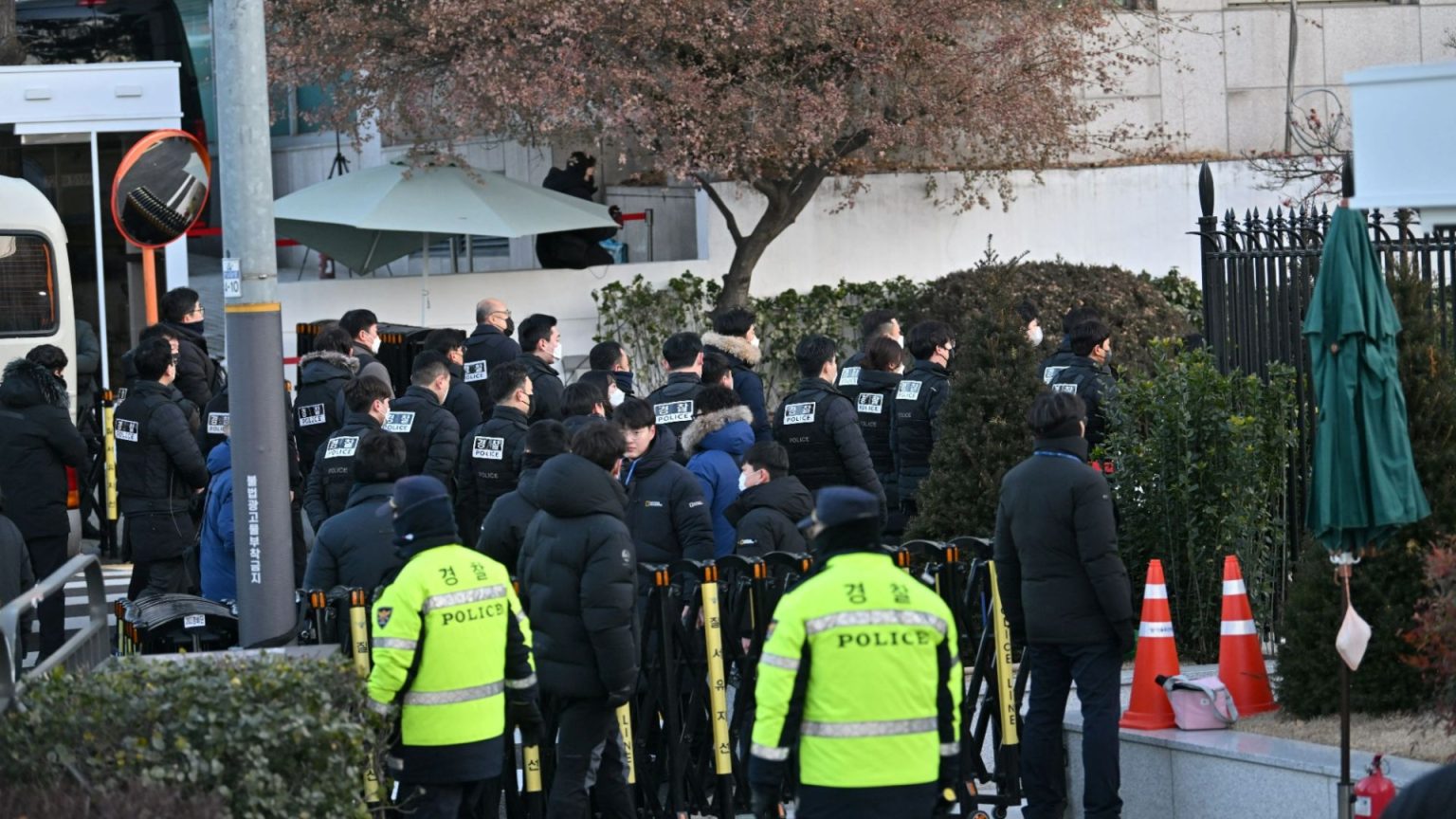The political landscape of South Korea has been embroiled in turmoil following a series of unprecedented events involving impeached President Yoon Suk Yeol. After declaring martial law in a late-night televised address, Yoon was subsequently impeached by the National Assembly, triggering a criminal investigation and an eventual arrest warrant. This chain of events marks a dramatic turning point in South Korean politics, with the potential arrest of a sitting president being an unprecedented occurrence.
The attempt to arrest Yoon at his Seoul residence was met with resistance from a military unit seemingly protecting him, leading to a standoff with the 3,000 officers mobilized for the operation. The scene outside the residence further intensified as counter-protesters clashed with police, voicing their support for Yoon and demanding the arrest of the lead investigator. This public display of support and opposition underscores the deep divisions within the country regarding Yoon’s actions and the legitimacy of the impeachment process.
Yoon’s declaration of martial law, albeit short-lived, sent shockwaves through the nation. Elite special forces stormed the parliament, authorized to use lethal force, prompting concerned citizens to form a human shield against the armed troops. Inside the parliament building, MPs and staff bravely resisted the soldiers, using fire extinguishers and makeshift barricades. The swift and decisive response from lawmakers, culminating in a vote against Yoon’s martial law decree, demonstrated the resilience of democratic institutions in the face of executive overreach.
The impeachment proceedings against Yoon stem from allegations that he ordered a defense commander to forcibly enter the parliament, even if it meant resorting to violence. Analysts have interpreted Yoon’s actions as a desperate attempt to cling to power and push his agenda through, given his dwindling public support and the mounting scandals surrounding his presidency. The overwhelming vote in favor of impeachment, including members of his own party, further highlights the erosion of his political base and the widespread condemnation of his actions.
Yoon’s brief two-year tenure has been plagued by controversies and scandals, both personal and political. His wife, Kim Keon Hee, faced accusations of influence peddling and accepting a luxury handbag from a supporter, further tarnishing the president’s image. The Halloween night disaster of 2022, where 159 lives were lost, added fuel to the fire, with critics accusing Yoon of protecting his allies instead of holding them accountable. These scandals, combined with his plummeting approval ratings, created a volatile political climate that ultimately culminated in his impeachment.
While the Constitutional Court deliberates on whether to reinstate Yoon or uphold the impeachment, Prime Minister Han Duck-soo briefly assumed the role of acting president before also facing impeachment. This period of political instability underscores the fragility of South Korea’s current political landscape. The charges of insurrection against Yoon, a charge from which he has no immunity, carry significant weight and could have profound implications for his future. The unfolding events will undoubtedly shape the future of South Korean politics and serve as a crucial test of the country’s democratic institutions.











